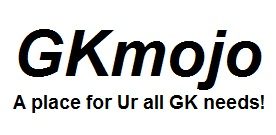- First bank in India– Bank of Hindustan (1770)
- First Bank with Indian Capital– Punjab National Bank (Founder of the Bank is Lala Lajpat Rai)
- First bank to get ISO certificate – Canara Bank
- First Bank to introduce ATM – HSBC (1987, Mumbai)
- First Bank in India that was established and managed an Indian Board – Central Bank of India
- First bank to give internet banking facility – ICICI
- First bank to sell mutual funds – State Bank of India
- First bank to issue credit cards – Central Bank of India
- First Rural Regional Bank (Grameen Bank) – Prathama Bank (sponsored Syndicate Bank)
- First bank to get ‘in principle’ banking license – IDFC and Bandhan Bank
- First bank to introduce blockchain technology – ICICI
- First Indian Bank to open an overseas branch – Bank of India
Types of Cheques
- Bearer cheques are the cheques which withdrawn to the cheque’s owner. These types of cheques normally used for a cash transaction.
- Order cheques are the cheques which are withdrawn for the payee (the person whose name is written on the cheque).
- Crossed Cheques: On the Crossed cheques, two lines are made on the top right of the cheque. Amount mentioned on the cheque is only transferred to the bank account of the payee. No cash payment is made.
- Call/Notice money is the money borrowed on demand for a very short period. When money is lent for a day it is known as Call Money.
- When the money is borrowed or lent for more than a day up to 14 days it is called Notice Money.
- NPA: NPA is an asset of a bank which is not producing any income.
Bank Usually classify as nonperforming assets any commercial loans which are more than 90 days overdue and any consumer loans which are more than 180 days overdue.
